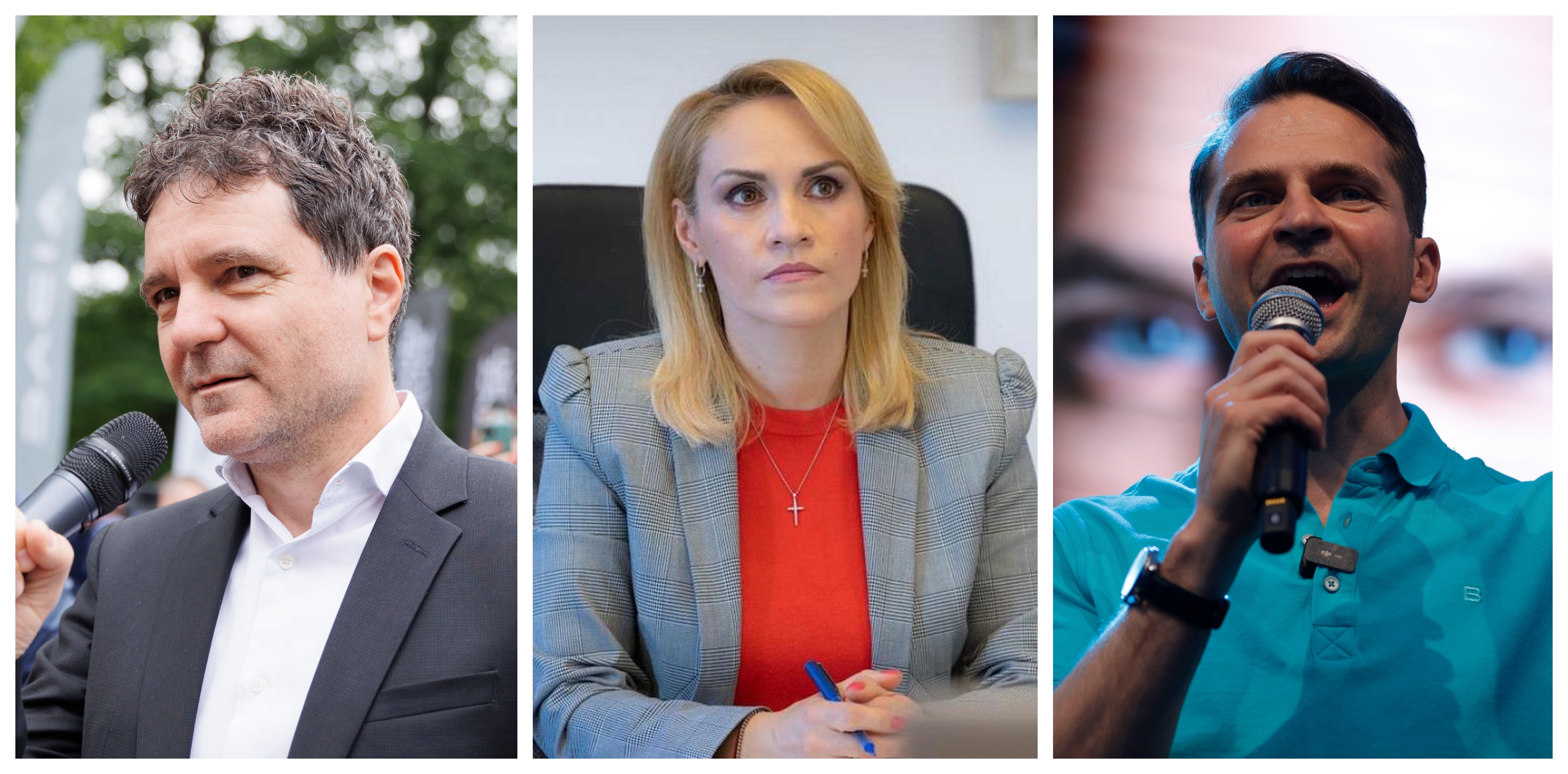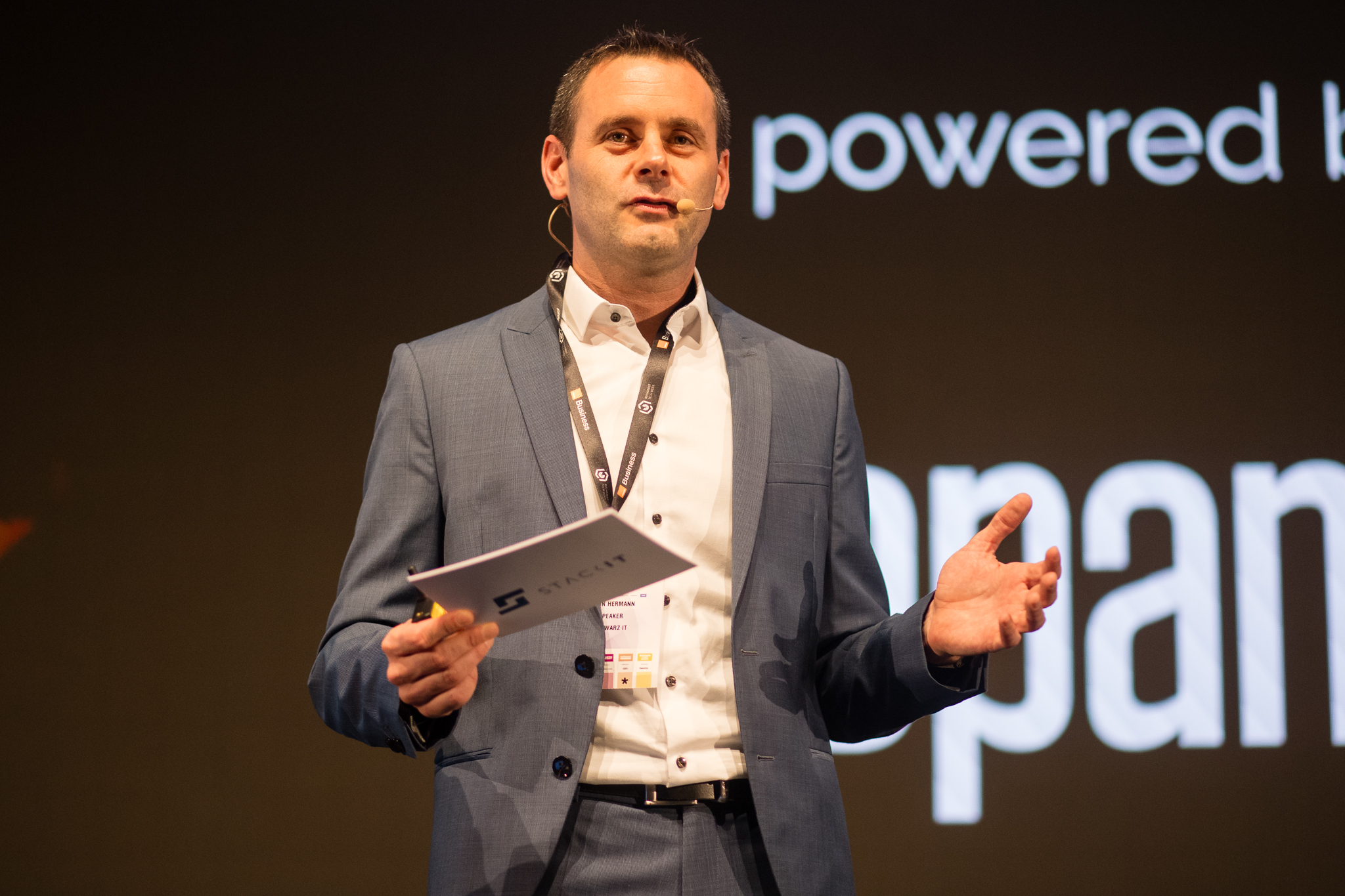The main candidates for the office of mayor of Bucharest responded to ten questions posed by the initiators of the Environmental Platform for Bucharest and the Civic Platform Together for the Green Belt on the most important environmental issues in the capital city.
The candidates are incumbent mayor Nicușor Dan, running as an independent backed by the reformist coalition of opposition parties ADU, former mayor Gabriela Firea, for the governing Social-Democrats, and Sebastian Burduja, the candidate of the National Liberal Party, part of the governing coalition.
The questions are based on the strategic priorities from the Environmental Pact for a Livable City launched to the candidates on May 28 by the Environmental Platform for Bucharest and the Civic Platform Together for the Green Belt. The document highlights ten directions of action and specific solutions for a greener, more breathable Bucharest with a better quality of life for its residents.
The Environmental Pact for a Livable City has been signed by all three interviewees, and its provisions have been incorporated into their electoral programs for the next four years.
In the various polls conducted so far, the incumbent mayor is ranked first, followed at a close distance by the left-wing candidate, while the Liberal candidate is generally fourth. District 5 mayor Cristian Popescu Piedone, also running for general mayor and coming in third place according to recent surveys, was contacted to commit to the pact and participate in an interview but chose not to respond to the invitation.
The interview and a summary of the candidates’ main answers below:
1. The national legislation provides a minimum of 26 square meters per resident. Bucharest currently has only about 9 square meters. How can we reach 26 square meters of green space per resident in the next four years and comply with the law?
Nicușor Dan argued that the first step to reaching that goal is to stop losing green areas to unregulated real estate development projects.
Gabriela Firea, in turn, promised more green areas and pointed at what she said was the poor maintenance of parks in the current administration.
Sebastian Burduja championed a new park in the vicinity of Izor Park, one that would circle the Palace of the Parliament, the seat of the legislative. He also mentioned plans to turn the forest in Băneasa into a forest-park.
2. What are the first three measures you will take to reduce traffic-related pollution?
The incumbent mayor, Nicușor Dan, highlighted contracts that were signed in his administration for 50 kilometers of modernized tram lines, but also the ongoing talks about the purchase of 250 additional trams. He also promised intelligent traffic lights in 550 intersections in a few years’ time.
Left-wing candidate Gabriela Firea argued that the purchasing of environmentally friendly buses, trams, and trolleys, in addition to extending the subway line, is key to discouraging people from using personal cars, and thereby reducing traffic-related pollution.
Sebastian Burduja began by describing a proper plan to monitor crowded areas. He also argued for dedicated bus lanes, more public transportation, facilities for cyclists, and underground passageways.
3. Is it possible to have 100% non-polluting public transport in the next four years? List three measures you will implement to achieve this goal.
Trams are key for reaching this goal, according to Nicușor Dan, because they are able to move the most people, after the subway. The tram network also does not intersect with car traffic, and EUR 800 million have gone or are planned to go into Bucharest’s tram network, he said.
For Gabriela Firea, extending the subway system is the only way to decrease public transport pollution in Bucharest. People who live in Ilfov county and work or study in Bucharest should be able to use the subway or other green public transportation, and therefore decrease pollution.
Bucharest must lead when it comes to environmental sustainability, says Sebastian Burduja. So far, only District 2 managed to have zero CO2 emissions. Green public transportation and further investments are needed for that goal, he says.
4. In terms of recycling, Romania is last in the EU, with the blame passed around for 30 years between the general mayor’s office, the district mayors, and now the Intercommunity Development Association for Integrated Waste Management in Bucharest. When will we close the garbage chutes in apartment blocks, and what measures will you take to efficiently separate waste, thus avoiding the disposal of recyclable waste in landfills?
Competences in the matter of waste are split between the district mayor and the general mayor, said Nicușor Dan, who also pointed out that his administration prevented a series of blockages in terms of waste storage.
Gabriela Firea, on the other hand, does not think that tough measures like closing garbage chutes are the answer in this regard. As general mayor, she would try to convince citizens to do selective garbage collection.
Similar programs are also proposed by Sebastian Burduja, who believes that a unified approach should be taken by the general City Hall and district authorities. In 4 years, Bucharest should not have to take its garbage to the waste dump, but use it for energy.
5. In Bucharest, about 500 hectares have been identified that could support the city’s green-blue infrastructure. Which urban natural areas will you protect and develop for Bucharest residents in the next four years? With which institutions or organizations will you collaborate to manage them?
This time, Nicușor Dan noted that a lot can be done when it comes to the parks in Bucharest. Their administration would be integrated into the Urban General Plan, he thinks. He also talked about developing a grand zoological park behind Ghencea Stadium and a large sports complex in the Ferentari region.
Meanwhile, former mayor Firea would focus on protecting the Vacaresti Natural Delta in the south of Bucharest and work together with district mayors to safeguard other natural areas.
“If you don’t measure a thing you cannot protect it,” said, in turn, Sebastian Burduja. He wants to create the Registry of Green Areas of Bucharest, allowing local authorities to know exactly where green spaces are. The Vacaresti Natural Delta should be open to the public, and IOR park should also be protected, he said.
6. The rehabilitation of the Dâmbovița River course cannot be postponed any longer due to structural problems with the concrete basin and comes with a series of important decisions on urban planning and traffic management. What is your vision for the river’s rehabilitation, and how will you obtain political support to implement it?
Plans are already underway and subject to approval in the Bucharest General Council, said mayor Nicușor Dan. The course of the river is also part of the coming Urbanistic General Plan, which will give it coherence.
Former mayor Gabriela Firea highlighted that her administration had talks with the government and other central authorities so the City Hall would have more powers in the area of the Dâmbovița River. Her plan is to rehabilitate the river if back in office.
The Dâmbovița River must be set up so it can be enjoyed by the people, like other rivers in Cluj, Oradea, and other European capitals, Sebastian Burduja also agreed. He also wants to revive the Danube-Bucharest channel, connecting the great European river to the capital.
7. Bucharest is already facing the urban heat island phenomenon, and its administration is exploring too few directions to combat it. Thermal discomfort can lead to severe health issues. List three solutions you will promote in the next term to mitigate and adapt to the effects of climate change.
Bucharest has to stop losing green areas first and foremost, Nicușor Dan argued. Further measures to combat climate change must be targeted and come from specialized studies.
Gabriela Firea wants public fountains in all areas of Bucharest, central and peripheral, and a better partnership with district city halls.
Bucharest has too many areas covered by concrete, said Sebastian Burduja. He wants to arrange for more green areas in historic zones, and plant as many trees as possible. Plus, he wants to place PV panels on top of buildings in the capital. The panels, he says, will provide almost as much power as the Cernavoda nuclear plant.
8. Please tell us what the Bucharest-Ilfov Green Belt means to you and list three reasons why Bucharest needs a green belt.
The Green Belt is a useful project, and numerous institutions need to work together for it, said Nicușor Dan. He argued, however, that it comes with a cost since some forest areas around the capital are privately held and must be purchased.
The “green lung” of Bucharest must be protected, and Bucharest City Hall must come together with private forest owners and the Ilfov County Council to do just that, according to Gabriela Firea.
Similarly, Sebastian Burduja said the Green Belt is a priority for Bucharest, and working together with Ilfov County Council is mandatory.
9. “If we don’t have data, we don’t have problems,” seems to be Romania’s motto when it comes to many environmental issues. What do you plan to do in the next four years to collect such data and present it transparently and promptly to inform citizens correctly?
Nicușor Dan wants to reunite the numerous sensors and data collectors and place them in one place, so the inhabitants of Bucharest will have access to environmental data. This includes transportation, air pollution, the location of kindergartens, and so on. He also highlighted that his administration increased the number of environmental sensors.
Former mayor Gabriela Firea started off by throwing doubt on the accuracy of existing sensors and said she would champion the introduction of more such devices. She also argued that the current administration failed to implement a sound strategy to improve air quality.
Meanwhile, Sebastian Burduja takes Boston City Hall as a model regarding this issue, since it provides on its website real-time data about environmental indicators. Bucharest needs to do the same, and give people real-time data about air quality and others. There are already 60 sensors for air quality in the city, and most of them are red, he said. This is due to the burning of waste in villages around Bucharest, which must be severely punished, the candidate argues.
10. In the Romanian Parliament, there is ongoing discussion about revising the Green Spaces Law and adopting the Urban Planning Code, one of the hot topics being green spaces in private ownership. How will you ensure the protection of green spaces in Bucharest, regardless of their ownership status?
It is normal for privately-held green areas to exist in Bucharest, said Nicușor Dan. He also noted that the issue is larger than Bucharest, and that the Romanian Parliament needs to better regulate green spaces that are in private ownership.
Bucharest must be a green city, from which people do not flee in fear, according to Gabriela Firea. She also promised to increase the green areas in the city.
State-owned green areas will be protected, vowed, in turn, Sebastian Burduja. Those that are privately held should also be kept in good condition and open to the public. As a last resort, Bucharest City Hall should expropriate such areas in order to protect them, no matter the cost.
The complete interview, in Romanian, in the video below:
(Photo source: Inquam Photos | Bogdan Buda and Octav Ganea, Gabriela Firea on Facebook)





